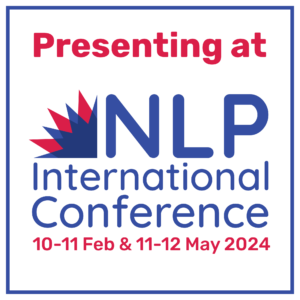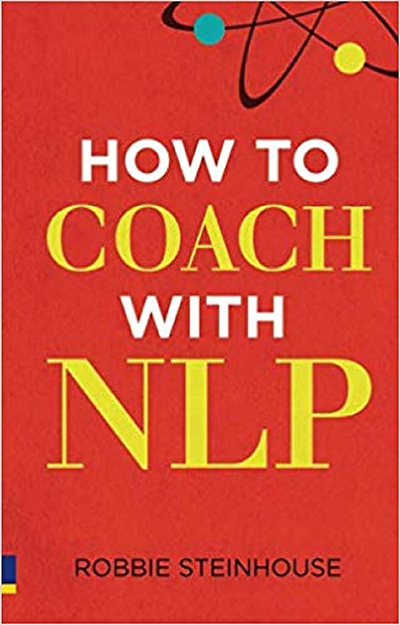NLP Techniques For Managers & HR Professionals
Many managers and HR Professionals attend our NLP courses, and in this article, we explain some of the key benefits they gain by using NLP techniques.
To manage and mentor competent people, especially millennials, using traditional management methods simply does not work, or worse, can alienate people, in today’s workplace.
NLP was created to find out what were the ‘magic beans’ of effective communicators: salespeople, leaders, and therapists.
One of the discoveries that these professionals had in common was an ability to help people to feel ‘seen’ and understood.
But how do you actually achieve this?
One of the answers is NLP’s approach to building and maintaining rapport. This a key concept in NLP.
It can be used manipulatively, however, at NLP School we believe in influencing people with integrity – communicating competently using rapport but being authentic at the same time. This also honours the principle of respecting others – that people are intelligent and will spot if you are trying to ‘technique’ them.
However, rapport remains a powerful tool, especially in one-to-one encounters. Here is a practical example: gaining influence by using an NLP rapport technique called pacing and leading.
Pacing – this means matching your state to that of the other person: matching (though not mimicking) their gestures, posture and facial expression – to be in ‘rhythm’ with them.
Leading – this means, having established connection by pacing, slowly encouraging them away from their current state to one where communication would be easier and more pleasant: livening up an unenthusiastic colleague or calming an angry or stressed one.
This rapport method is an effective means of meeting people where they are, before you do anything else. Although this may seem obvious, often we are so preoccupied with wanting to rush and get things done, we forget to bring people with us. This then elongates the communication process as we have to effectively start again. By simply focusing on this principle at the beginning of every meeting, so that people feel acknowledged, they are then more likely to be influenced by you.
By doing this, you will also benefit from taking that ‘little pause’ to gain perspective and then intentionally connect authentically with another person. This is likely to be reciprocated as rapport is a two-way street.
This light hearted video filmed on our NLP Core Skills course demonstrates how not to do it!
Conflict resolution
Conflict resolution is another important part of being effective with colleagues, direct reports and in an HR role. It is made a lot easier if you can really see all sides of an argument – again NLP offers a specific methodology.
Robert Dilts’ Meta Mirror is a powerful tool for acquiring this awareness. It enables you to see an event from various participants’ perspectives, including that of an objective observer: particularly useful if you are part of the conflict or managing others in conflict.
Your own difficult feelings can also be managed with a range of NLP techniques. After 35 years in business, I still find myself in situations which are new and stressful, and I use these techniques to boost my confidence – to help me feel calmer and present. I don’t know what I’d do without them.
How NLP helps beyond managing emotions
In the above examples, NLP helps with the emotional aspect of business and HR management.
But it also offers assistance with connecting the magic of ‘vision’ to the more cerebral, rational side of workplace life.
Business manuals talk endlessly about missions and goals, but on their own, these can seem airy and elusive.
Another Robert Dilts’ model, the Logical Levels, places mission in a context, and thus makes it more understandable and therefore achievable.
Goals are easy to waiver from (or not establish properly in the first place).
One of the first NLP techniques I use when I coach clients is the ‘Well Formed Outcome’, this technique makes sure they are heading consistently in a direction they actually want to head in. As Stephen Covey said, “Common sense isn’t always common practice.” Once a clearly defined goal is agreed, then keeping a team on track by asking the simple questions, “What is the next coherent step? Who is going to do it and when?” may seem simple but is managerial gold dust.
The Logical Levels model can also help businesses with branding and with vision. I talk about this in my book, Think Like an Entrepreneur.
The clarity of NLP
Unlike much management material, NLP is expressed in clear and direct language.
The principles behind NLP terminology are straightforward and make sense. NLP is a set of tools that will help develop people to become more effective and ultimately more sympathetic. It also helps people to become happier, which apart from the obvious benefit of feeling good, makes a huge different to how people are perceived. It is more pleasant to spend time with contented people as they make decisions from a place of consideration, rather than reaction – the result is people who are more powerful, considerate, and effective.
Did you like this post?
Then check out our events and courses
Sign up to our e-learning
Where to find us
For posts, events, free open days and more, follow NLP School on:
Where to find Robbie
LinkedIn: Robbie Steinhouse











